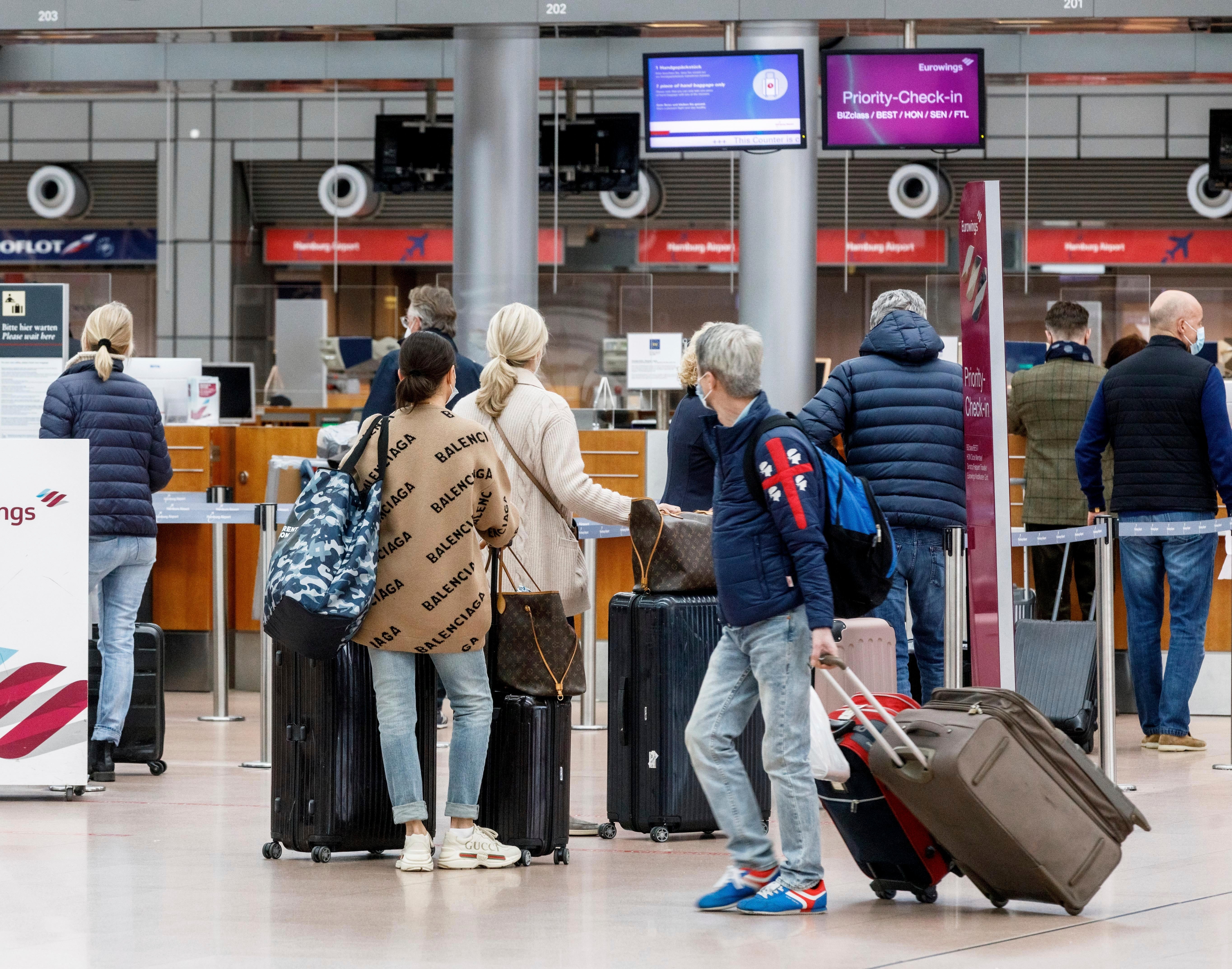Government urges Germans to limit travel as bookings surge
The German government on Monday urged citizens to limit travel as airlines reported a surge in bookings to traditional beach holiday destinations for Easter

Your support helps us to tell the story
From reproductive rights to climate change to Big Tech, The Independent is on the ground when the story is developing. Whether it's investigating the financials of Elon Musk's pro-Trump PAC or producing our latest documentary, 'The A Word', which shines a light on the American women fighting for reproductive rights, we know how important it is to parse out the facts from the messaging.
At such a critical moment in US history, we need reporters on the ground. Your donation allows us to keep sending journalists to speak to both sides of the story.
The Independent is trusted by Americans across the entire political spectrum. And unlike many other quality news outlets, we choose not to lock Americans out of our reporting and analysis with paywalls. We believe quality journalism should be available to everyone, paid for by those who can afford it.
Your support makes all the difference.The German government on Monday urged citizens to limit travel amid the coronavirus pandemic as airlines reported a surge in bookings to traditional beach holiday destinations for Easter.
Budget airline Eurowings announced at the weekend that it is laying on hundreds of extra flights to Mallorca over the Easter period, and travel giant TUI said it is opening hotels on the island early after Germany’s disease control agency removed the Spanish island from its list of ‘risk areas.’
While the requirement for people to quarantine on return from Mallorca and other Spanish holiday hotspots has now been lifted, the German government made clear it frowns on any such trips.
“The appeal is to avoid any not absolutely necessary travel,” government spokesman Steffen Seibert told reporters in Berlin A Foreign Ministry spokeswoman, Maria Adebahr, said that “the absence of a travel warning is no invitation to travel."
The German government bailed out Lufthansa Eurowings' parent company, with $10 billion last year. Asked about the discrepancy between the company's flight offerings and the government's advice, Seibert said it was in Germany's interest “to have a strong airline.”
While the number of new weekly COVID-19 cases on the Balearic islands, of which Mallorca is a part, has fallen below the ‘risk area’ threshold of 50 per 100,000 inhabitants, much of Germany remains above that level and rising.
This has led to tensions between Chancellor Angela Merkel and state governors, some of whom have resisted imposing stricter lockdown measures again when newly confirmed cases rise above 100 per 100,000 inhabitants in a week.
The ‘emergency brake’ was agreed by federal and state officials two weeks ago as part of a deal to begin reopening stores, schools and museums, despite warnings from epidemiologists that infection rates could rise dramatically by Easter.
Seibert, the government spokesman, urged states to respect the agreement.
“The federal government (...) recognizes the danger of the current situation and so should everybody else,” he said, noting the rising infection rates in the country. “This is a bad development that we all need to react to together.”
Germany’s association of intensive care doctors called Monday for a return to stricter lockdown measures, while a teaching union urged all teachers to be given faster access to vaccines as students return to secondary schools this week.
Seibert acknowledged that the rise in infections among younger students was “an alarm signal” but declined to say whether the federal government would support moving teachers up the vaccine priority list, citing Germany's system of devolved power.
“Schooling is a matter for the states,” he said.